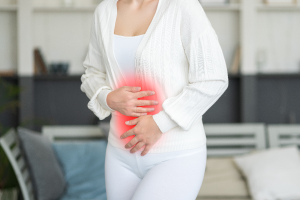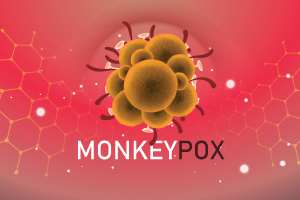

Causes of severe headaches are not really known. But since there are various types of headaches, identifying the type is extremely pivotal.
Tension type headache is the outcome of stress, depression, or an unhealthy lifestyle. Lack of sleep, working without a break, and unhealthy eating habits can trigger the tension type headache. Read through to understand the various types of headaches and how to identify them.
Different Types of Headaches
Headaches are the most common pain condition that most of us experience. The pain can be sharp, dull, or throbbing. Stress management, medication, and calming can be some of the ways to treat headaches. There are 14 different types of headaches and identifying the type of ache you are going through is crucial to get the right treatment.

1. Tension Type Headache
The headache normally experienced is the tension type headache. Stress, anxiety, depression, lack of sleep, eating unhealthy food, and alcohol consumption can lead to this type of headache.
You will experience dull stretching pain on both sides of your head, which usually feels like a tight band around your head. Since it is not as severe as migraine and you will not have vomiting or nausea, you can carry on with your daily activities without much discomfort.
Treatment
Rest, muscle relaxants, or ice packs can provide considerable relief. A combination of analgesics with caffeine in a medicine will also help.
2. Sinus Headaches
You will have constant pain in the nasal area if you have sinus headaches. The pain increases throughout the day. The sinus ducts will be blocked and you will have trouble breathing. The causes of severe headache are infections that are usually accompanied by fever. Sinus headaches can be mistaken for migraine as the symptoms like nasal congestion, watery eyes, and sinus pressure can occur for both conditions.
However, an infection combined with a green or red-tinged nasal discharge is the actual symptom of sinus headaches.
Treatment
Sinus headaches will resolve with time but antibiotics can give quick relief. Decongestants along with antibiotics are also a good treatment for headaches due to sinus infections.
3. Cluster Headaches
Headaches that occur in cycles are cluster headaches. Each headache can last for 30 to 45 min. The attack may recur multiple times in a day for a certain period, followed by a pain-free period for years.
These headaches appear without warning and are characterised by severe pain in the left or right side of the head. Watery eyes, nasal congestion, or a runny nose on the same side of the face are other symptoms of these headaches. Cluster headaches are most common among men in the age group of 20 to 50. The person feels restless and is unable to lie down during the attacks.
Though the causes of severe headache in this case is not known, they could be triggered by the release of serotonin or histamine. Other reasons for cluster headaches could be smoking or consumption of alcohol and certain food types. High altitudes can also trigger cluster headaches.
Treatment
Cluster headache attacks can be controlled with oxygen therapy or nasal spray. Medications can prevent future attacks as well.
4. Rebound Headaches
Overuse of painkillers is the reason for rebound headaches. Persons suffering from headaches get addicted to painkillers and cannot get out of it and this causes a rebound of headaches. These headaches usually start in the early morning and the severity increases through the day and the location of the headache also keeps shifting. Persons with rebound headaches also experience nausea, sleeplessness, and irritability.
It is revealed that too much medication shifts the brain to an excited state and triggers headaches. Rebound headaches can also be withdrawal symptoms as the level of medicine reduces in the bloodstream.
Treatment
It is recommended to restrict the painkillers to two days a week to prevent rebound headaches. If you are on sedatives or tranquillisers, you should necessarily consult a healthcare provider and get his/her suggestion with regard to either stopping the medicines or altering the dosage to overcome the severe headache.
5. Migraine Headaches
The causes of migraine headache are not known. While genes play a major role, the activity of the brain cell may affect nerve cells and blood vessel function. Studies have revealed that women are more susceptible to migraine headaches than men.
You can determine the migraine headache if you experience the following:
- Pain on one side of the head. It could be a throbbing pain, moderate pain, severe pain, or a pain that disables you from doing regular activities.
- You would have had the same kind of pain earlier as well.
- The severe headache lasts for a period between 4 hours and 72 hours.
- You will have nausea and vomiting or you will be disturbed by light or sound.
Numbness of hand or distorted images can be a warning sign of a migraine attack. Migraine headaches are normally triggered by lack of sleep, eating habits, or hormonal changes. If skipping a meal triggers a migraine, you should make it a point to never miss meals going forward.
Treatment
Painkillers can provide respite from migraine but hydrating yourself, resting in a cool dark room with your eyes closed, or placing a cold pack on your forehead are better options.
6. Dental Headache
Some of the dental-related conditions that can trigger a headache are unknowingly gnashing the teeth or temporomandibular joint disorder (TMJ). Gnashing the teeth causes over-muscular activity, resulting in muscle spasms and headaches. The joints in front of your ear connect the skull to your jaw. TMJ affects these joints that trigger a severe headache which seems like a tension headache or migraine headache. Consulting a dentist will help diagnose these headaches.
Treatment
Rest, physiotherapy, bite guards, and stress reduction are some of the treatments. In severe cases, surgery may be suggested.
7. Orgasm Headaches
This type of headache is common in younger men and starts soon after intercourse begins, followed by a severe headache that appears less than a minute after a climax and lasts for a minimum of 5 minutes. The pain may linger for hours in some cases and subside on its own.
Treatment
Consuming a painkiller before intercourse can help.
8. Caffeine Headaches
If you have regulated coffee intake and you miss one of those, you may end up having a headache. Persons who are addicted to coffee may have withdrawal symptoms in the form of caffeine headaches. You will have a throbbing headache if you miss one of those cups of coffee.
Treatment
The best way to prevent these headaches is by not missing any of those coffee cups. The permanent remedy could be quitting coffee. You may suffer from caffeine headaches for some time but they will eventually stop.
9. Early Morning Headaches
If you wake up with a headache in the morning, it could be a migraine or the medicine diminishing in your bloodstream that causes a rebound headache or sleeplessness. If early morning headaches become an everyday pattern, then you should consult a physician as it could lead to serious health issues.
Treatment
Control the intake of painkillers and follow tips that could help you get a good night’s sleep. Avoid late nights if the early morning headache is a migraine headache.
10. Chronic Daily Headaches
If you constantly have headaches for 15 days a month for over three months, then you are having chronic daily headaches. It could be rebound headaches caused by overuse of medications, a head injury or, in rare cases, a brain tumour or meningitis. Studies have shown that chronic headaches could be due to migraine or could be tension headaches.
Treatment
The treatment depends on the diagnosis. It will depend on the type of headache. Limiting the usage of painkillers is, however, recommended.
11. Menstrual Headaches
Menstrual headaches normally appear three days before and two days after your periods. It could be triggered by the dip in the oestrogen level just before your periods. Women who are prone to migraine attacks get menstrual headaches. Also, women on birth control pills are susceptible to menstrual headaches as these pills tend to affect the oestrogen levels. Symptoms include headache with fatigue, joint pain, decreased urination, and constipation.
Treatment
Over-the-counter headache remedies help with menstrual headache. The magnesium supplements help menstrual related migraine headaches.
12. Ice-Cream Headaches
Ice-cream headaches are not a myth. You can experience a severe headache while you are enjoying a cold drink or an ice cream. The reason is the spasms of the blood vessels due to the extreme cold from the ice cream followed by the quick rebound response of vasodilation by warmth of air disturbs the blood flow. These headaches are otherwise termed ‘brain freezers’.
Treatment
You can either take small breaks in between till the pain subsides or sip warm water to put an end to the brain spasms.
13. Weekend Headaches
Weekend headaches normally appear when you oversleep on weekend mornings. It could also be an effect of stress during the weekdays. Weekend headaches can also be withdrawal symptoms of not having your cup of coffee at regular intervals. It happens when you oversleep during the weekend or a holiday and end up consuming less caffeine compared to your consumption on the weekdays.
Treatment
Over-the-counter painkillers can provide relief. You can also prevent weekend headaches by sticking to your regular sleep-wake-up cycle, even on weekends and holidays.
14. Emergency Headaches
All headaches are not emergency headaches but certain symptoms have to be viewed seriously and provided with immediate medical attention. The onset of a headache that explodes almost immediately can be a brain aneurysm. Headache due to a spike in blood pressure, headache accompanied by fever, and headache due to a blow on your head can all be emergency headaches and should be treated immediately.
Treatment
The symptoms like numbness, dizziness, pain in the neck or change in vision or speech along with a headache call for instant medical attention.

Conclusion
Now you know that there are various types of headaches with different causes and symptoms. The duration of these headaches also varies. A tension type headache may persist until you learn to calm your mind. There are certain types of headaches, like chronic headaches, that can last for days. You can help your health provider diagnose the type of headache by providing details of the trigger and symptoms of the headache in order to get proper medication.




